Cubalex, 13 April 2021. Summary: Coronavirus cases are continuing to increase and the government announces new coronavirus strains in the country. Repression of activists, members of the opposition and journalists continues before the Party Congress
April 5th. New measures in Ciego de Avila against increasing number of coronavirus cases. These include restriction on movement starting at 4 pm, closing of all state and private services at 3 pm, and limits on entry and exit of private cars from the province.
April 6th. Díaz-Canel announces on Twitter the enactment of more severe measures to control the health situation. Referring to these measures, in Havana, the PCC First Secretary Antonio Torres called them “decisions of war”.
April 6th. Among the new measures announced by the Cuban government are maintenance of patrols in the main avenues and increasing them in neighbourhoods to guarantee order and compliance with keeping indoors; rigorous implementation of penalties and fines on parents and/or teachers who allow children out into the streets, failure to use a face mask or to comply with social distancing rules; provision of public transport only for prioritised economic or social activities; increasing control of traffic, only permitting the minimum possible movement (only authorised persons); establishing identification of houses and institutions where there are self-isolating persons. They also said that in the coming days they will announce more rigorous measures for Havana. continue reading
April 8th. Jardines del Rey International Airport stays open, receiving Russian tourists.
April 9th. The government of Bayamo decrees 24 hour restriction of movement in 15 areas of the authority, as part of the new measures to fight coronavirus.
Litigation and breaches by the authorities
April 5th. Agent Yoel tried to detain Esteban Rodriguez in the street. Esteban resisted and was violently detained by the police. He was let out about 3 pm, near William Soler Hospital with lesions on his wrists from being handcuffed.
April 5th. State security agents stop children going to a birthday party organised by Luis Manuel Otero. Luis goes out to the corner to give out sweets and is violently detained. He disappeared until the following morning.
April 5th. Along with Manuel Otero, they detain Manuel de la Cruz Pascual, who was dressed as a clown to entertain the children. They took him handcuffed to the Aguilera police station, in the Diez de Octubre district. There they took away his phone, got into his facebook profile, and entered messages, as if from him, against the San Isidro movement, and denigrating comments against himself. They released him about 8 at night. They fined him 3 thousand pesos for “spreading pandemic”, even though Manuel was wearing a mask and and he was arrested just as he was leaving the house, before he could go near anybody.
April 5th. Anyell Valdés, Osmani Pardo, Yasser Castellanos and Verónica Vega, Héctor Luis Valdés, Amaury Pacheco and Iris Ruiz, Jorge Luis Capote, Osmani Pardo, Oscar Casanella, Iliana Hernández, Camila Acosta, Carolina Barrero, María Matienzo and Kirenia Yalit, Abu Dyanah, Tania Bruguera started off their day surrounded by security police.
April 5th. Hector Luis Valdes, who had completed 36 hours of a hunger strike, left his house and was violently arrested. They kept him for an hour sitting in the sun in a patrol car, in the Plaza of the Revolution area, and then they let him go.
April 5th. The activist Kirenia Yalit Nunez is arrested with violence when she was trying to leave her house. They drove her to the police station at El Cerro. She was released at around 5 in the afternoon.
They detained the journalist Maria Matienzo when she left her house to go to the El Cerro police station to inquire about Kirenia Yalit. They took her to the Zapata station and let her go around 5 pm.
April 5th. Dr. Nelva Ismarays Ortega, Fátima Victoria Ferrer (16 years old) and the activist Yaniris Popa were arrested when they went to visit the striker Niuvis Biscet, whom they found in a bad state of health. Nelva is the doctor who took on the health care of activists on hunger strike in the UNPACU HQ. Popa was released after a short time and Nelva and Fatima around 8 at night.
April 6th. They arrested AfriK when he left his house to check on the situation with Luis Manuel Otero. He was let go a few hours later.
April 6th. State Security has used the coronavirus to stop Carolina Barrero leaving her house, while the rest of her neighbours could come and go as they liked. Carolina went out to throw out the trash and asked why was that and for that the police arrested her. They took her to the station at Cuba and Chacon, they fined her 3 thousand pesos and then they let her go.
April 6th. State security met with Marina Paz Lavaceno because she received help from UNPACU directed to people in need.
April 7th. Maykel Osorbo reported he had an officer following him around everywhere.
April 7th. State security met with a couple who wrote an article complaining to the government about lack of medicines. They told them they were accused of selling illicit articles to take abroad.
April 7th. The Cuban government attempted to try Barbaro de Cespedes, who, on Good Friday, walked around the streets of Camaguey with a cross which had slogans against the system written on it. They attempted to try him for alleged violations of sanitary measures against coronavirus. “After 8 days in the clink when he was not allowed to make a phone call or be visited by his family or my lawyers, El Patriota de Camaguey (Camaguey Patriot) was let out on house arrest until they finished “the process” they had started.
April 8th. The small children of of two independent journalists of ICLEP in Mayabeque were attacked by other kids, incited by some people who had systematically had a go at their parents for political motives. When they went out to find out what had happened, those people responded by questioning their ideological orientation.
April 8th. Iliana Hernandez, Thais Mailen Franco, Janet Balbuena and Eliecer Romero were arrested, while they were walking down Obispo Street. They were taken to the station at Infanta. They were let out at midnight with fines of 30 pesos for alleged public nuisance. The police damaged Iliana Hernandez’ phone.
April 8th. Oscar Casanella found himself surrounded in his house, being monitored by the head man “Angel” of State Security.
April 8th. State security met the singer El Funky at 1 pm, and at 5 pm no-one had any information about him nor could they contact him. At the Cuba and Chacon police station they threatened to lock him up and told him that because of his connections with the San Isidro movement, also the fines and detentions he had had, and for being unemployed, they would get a six months control order in which he would have to report to them once a month and they would put a tail on him.
April 8th. They detained Lázaro Alonso and Marlen Alonso, members of the opposition group New Republic , for public disorder. They took them to unit 5 of the PNR (National Revolutionary Police). They released them at 4 pm. They imposed a fine of 2 thousand pesos on Lazaro Alonso for incorrect use of a face mask, and issued Marlen with an official warning.
April 8th. The Special Forces of the Ministry of the Interior and police barged in to the home of the opposition leader Fernando Santana Vega, in Ciego de Avila, and took him away in a violent manner. They also attacked his wife and brother.
April 9th. They threatened Tania Bruguera, Amaury Pacheco and Iris Ruiz, Camila Lobón and Katherine Bisquet, Iliana Hernández, and Luis Manuel Otero with surveillance. Maykep Castillo was also kept under surveillance.
April 9th. They told the activist Raux Denis to present himself that same day at Unit 3 of the PNR in Santa Clara. The reason for the summons was having published in social media a drawing of a Mambi guerrilla with a ’Patria y Vida’ poster. “They threatened my mama, my girlfriend, my family and my brother who is in jail with being beaten up, and they threatened to kill me in the street,” he reported.
April 9th. On three occasions State Security tried to get the influencer known as El Gato de Cuba [The Cuban Cat] to go with them for an interrogation, but unofficially.
April 9th. Major Edilse Matos summoned Manuel de la Cruz to appear that same day at the El Cotorro police station. When he got there he waited for lieutenant colonel of state security “Camilo”, who interrogated him for 9 hours and threatened him with being jailed.
On Friday the Cuban authorities evacuated an illegal settlement of more than 50 houses which had been put up in Jamaica, in San Jose, Mayabeque.
April 10th. Diasniurka Salcedo tried to leave the house, but a police vehicle pursued her.
April 10th. Iliana Hernandez found herself surrounded by security agents.
April 11th. Homes of AfriK, Luis Manuel Otero, Carolina Barrero, Luz Escobar, and Iliana Hernández were surrounded and monitored.
April 11th. Berta Soler and Angel Moya were detained on leaving the HQ of Las Damas de Blanco (The Ladies in White). They put them in a private car and then let them go, leaving a surveillance operation in the area.
Internet
April 5th. In the morning they cut Fabio Corchado’s internet connection.
April 5th. In the morning, they cut Iliana Hernandez’ data connection and cellphone connection.
April 11th, Two days after removing the siege, they again cut the connection to the HQ of UNPACU in Santiago de Cuba.
April 11th. Various members and people connected with 27N (27 November) woke up to find themselves without telephone or internet service.
Other things
April 6th. The Ministry of Health indicated “the identification in Cuba of 5 variants and 6 mutations of variant 614 (a strain identified from the start of the pandemic in the country), with 4 new strains circulating (initially detected in South Africa, California, USA, the UK, and Wuhan, China) recognised internationally as highly contagious and with high mortality rate.”
April 7th. The Secretary General of the OAS issued a communique expressing concern for the hunger strikers at UNPACU and held the Cuban government responsible for whatever might happen.
April 9th. The Ministry of Health reported the death of 2 children and 2 gravely ill in the neonatal service at Guantanamo hospital, resulting from an adverse reaction to a medicine.
April 9th. Jose Daniel Ferrer stated that the Cuban government removed the siege around the UNPACU office. He wrote in Twitter that two MININT generals and the governor of Santiago de Cuba, Beatriz Johnson, left the place to get in touch with their people.
April 10th. The singer La Diosa de Cuba reported that her friend’s mother was obliged to participate in the test of the Soberana vaccine, under pain of being fined 5 thousand pesos. Responding to the pressure, the lady participated in the study and died after receiving the dose.
Translated by GH
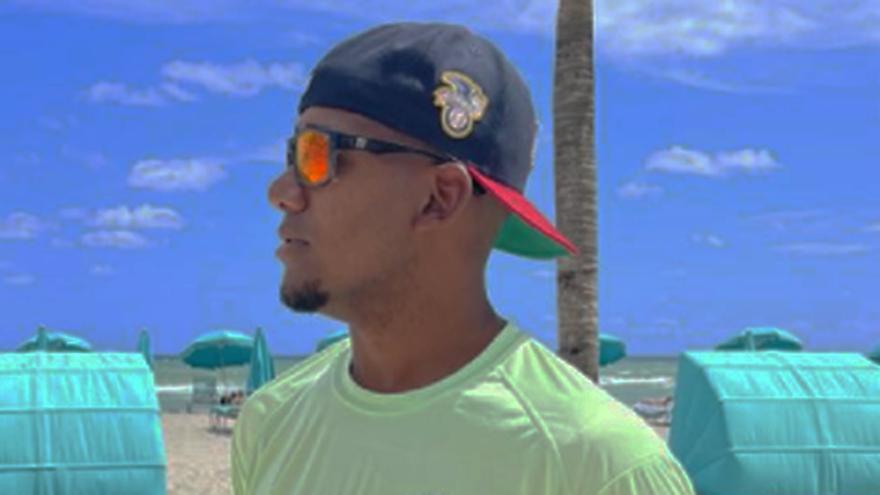
![]() 14ymedio, Havana, October 3, 2021 — The pitcher from Santiago, Uber Mejías, is now in the United States, having “crossed the frontier and requested political asylum”, according to information from the journalist Francys Romero. “He will shortly start the documentation process to become a free agent”.
14ymedio, Havana, October 3, 2021 — The pitcher from Santiago, Uber Mejías, is now in the United States, having “crossed the frontier and requested political asylum”, according to information from the journalist Francys Romero. “He will shortly start the documentation process to become a free agent”.

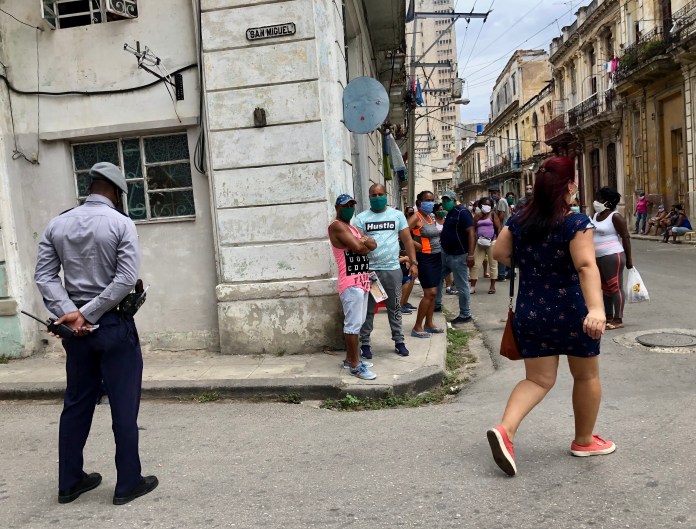
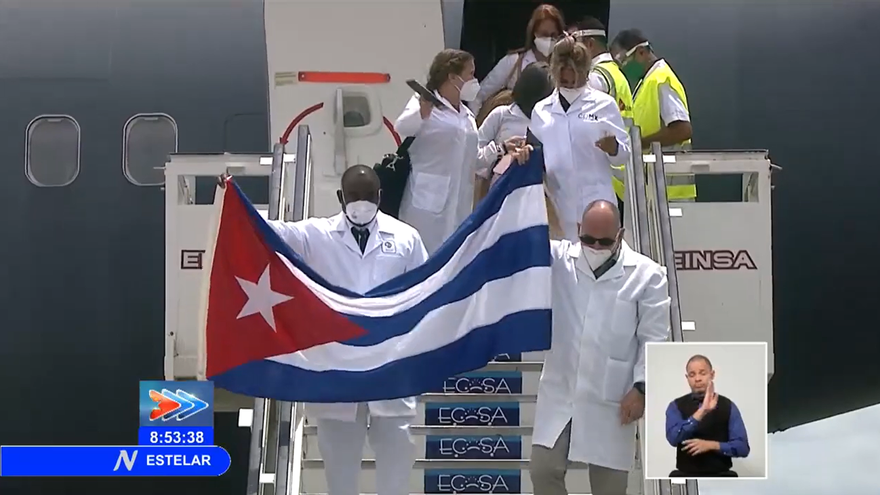

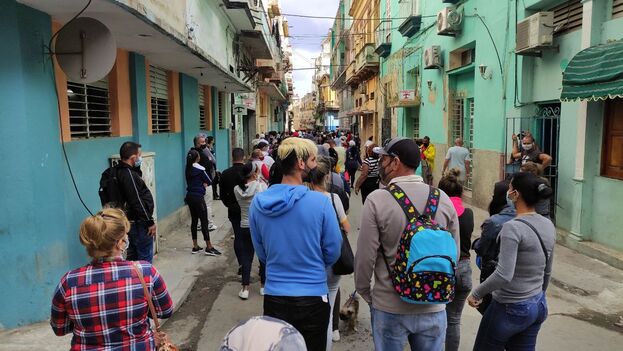
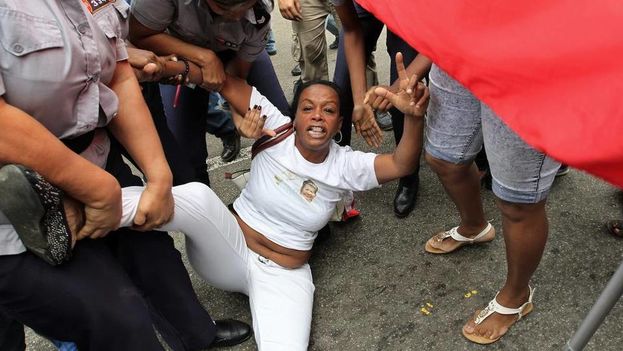
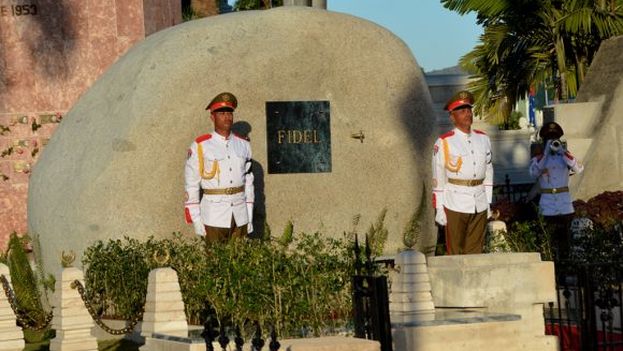

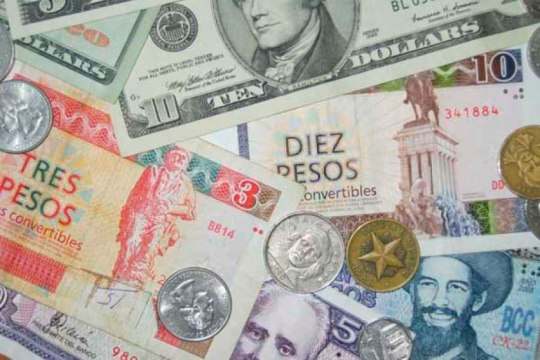




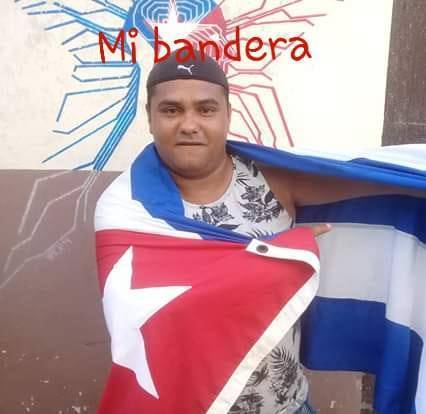 Cubalex, 5 August 2020 — Esteban Lazaro Rodriguez, a reporter with the independent digital media ADN, was arrested at his home at 400 Calle Villegas, between Teniente Rey and Muralla, in Havana. The independent journalist was seized around 12:30 in the afternoon, on August 4th, 2020, by several plain clothes state officers, and also some in uniform, one of whom had the registered number 04220.
Cubalex, 5 August 2020 — Esteban Lazaro Rodriguez, a reporter with the independent digital media ADN, was arrested at his home at 400 Calle Villegas, between Teniente Rey and Muralla, in Havana. The independent journalist was seized around 12:30 in the afternoon, on August 4th, 2020, by several plain clothes state officers, and also some in uniform, one of whom had the registered number 04220.